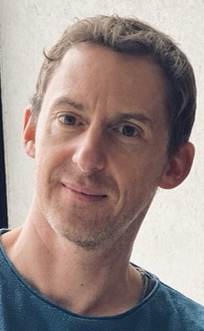Project Z02 - Cell-Fate Decision Analysis Platform
The "Cell-Fate Decision Analysis Platform" supports the projects of the CRC 1054 in their study of cellular determinants of immune cell activation and effector function (examples below). To this end we have set up the ImageStream Mark II technology for flow cytometric image acquisition, as well as the Cytek Aurora spectral cytometer for high-parameter flow cytometry.
The technology platform is integrated in the Core Facility Flow Cytometry at BMC, including the Booking Management System (PPMS), via which CRC members can request training or assistance, download SOPs, and book acquisition time at the ImageStream Mark II and Cytek Aurora.
The capabilities of the ImageStream platform allow us to study cellular morphology and quantify the intensity and (co-)localization of fluorescent probes combined with the identification of rare sub-populations in highly heterogeneous cell samples. The acquired data are then analyzed by the IDEAS® Software which combines traditional multi-color flow cytometry analysis with statistical evaluation and visual confirmation. Since the ImageStream application generates large data sets we have implemented a powerful workstation (06/2014) equipped with a Mac Pro 2.7GHz Intel 12-Core Xeon E5; 12GB RAM; 1TB Flash-memory; FirePro D700, which is also open to all ImageStream users.
Application Examples:
The "Cell-Fate Decision Analysis Platform" has helped establishing robust protocols for diverse research questions that are used by the researchers of this CRC to determine and quantify the activation status or communication mechanisms of immune cells. We initially focused on the intracellular localization of key signaling molecules in lymphocytes like activation-induced nuclear translocation of NFAT or NF-B. We expanded the expertise to studies of proteins at immunological synapses, as well as studies of protein localization during cell cycle phases. Recent work included analysis of extracellular vesicles bound to activated T cells, study of immune cell conjugates / immune synapses, as well as establishment of protocols for fluorescent in situ hybridization (so-called Flow-FISH).
We are continuously increasing our repertoire of techniques and fields of study. We will focus among others on extracellular vesicle analysis tools. In other projects we continue to visualize and localize interactions of proteins, relate protein/protein interactions to subcellular compartments and/or cell cycle status, as well as localize and quantify specific mRNA, rRNA or chromosomes.
Project Leader: Dr. Jan Kranich
+49 (0)89 2180-75660 (BMC N.B 00.017)
jan.kranich(at)med.uni-muenchen.de
Core Facility Manager: Dr. Benjamin Tast
+49 (0)89 2180-71856 (office, BMC N 02.051) or -71228 (lab)
benjamin.tast(at)med.uni-muenchen.de
Flow Cytometry Specialist: Pardis Khosravani, M.Sc.
+49 (0)89 2180-75670 (office, BMC N 02.051) or -71228 (lab)
pardis.khosravani(at)med.uni-muenchen.de
Flow Cytometry Specialist: Roqayeh Noori
+49 (0)89 2180-75670 (office, BMC N 02.051) or -71228 (lab)
roqayeh.noori(@)med.uni-muenchen.de





